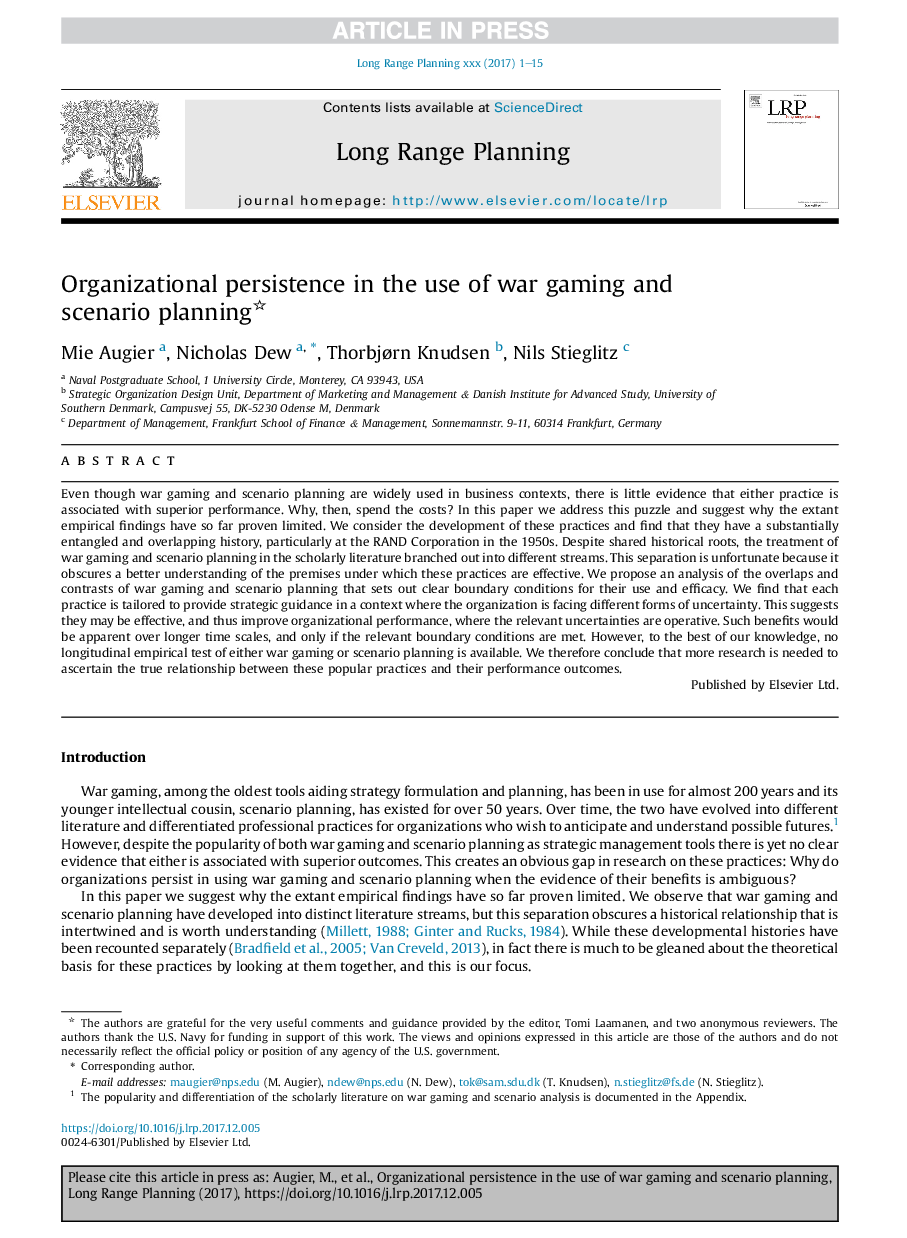| Article ID | Journal | Published Year | Pages | File Type |
|---|---|---|---|---|
| 10154016 | Long Range Planning | 2018 | 15 Pages |
Abstract
Even though war gaming and scenario planning are widely used in business contexts, there is little evidence that either practice is associated with superior performance. Why, then, spend the costs? In this paper we address this puzzle and suggest why the extant empirical findings have so far proven limited. We consider the development of these practices and find that they have a substantially entangled and overlapping history, particularly at the RAND Corporation in the 1950s. Despite shared historical roots, the treatment of war gaming and scenario planning in the scholarly literature branched out into different streams. This separation is unfortunate because it obscures a better understanding of the premises under which these practices are effective. We propose an analysis of the overlaps and contrasts of war gaming and scenario planning that sets out clear boundary conditions for their use and efficacy. We find that each practice is tailored to provide strategic guidance in a context where the organization is facing different forms of uncertainty. This suggests they may be effective, and thus improve organizational performance, where the relevant uncertainties are operative. Such benefits would be apparent over longer time scales, and only if the relevant boundary conditions are met. However, to the best of our knowledge, no longitudinal empirical test of either war gaming or scenario planning is available. We therefore conclude that more research is needed to ascertain the true relationship between these popular practices and their performance outcomes.
Related Topics
Social Sciences and Humanities
Business, Management and Accounting
Business and International Management
Authors
Mie Augier, Nicholas Dew, Thorbjørn Knudsen, Nils Stieglitz,
